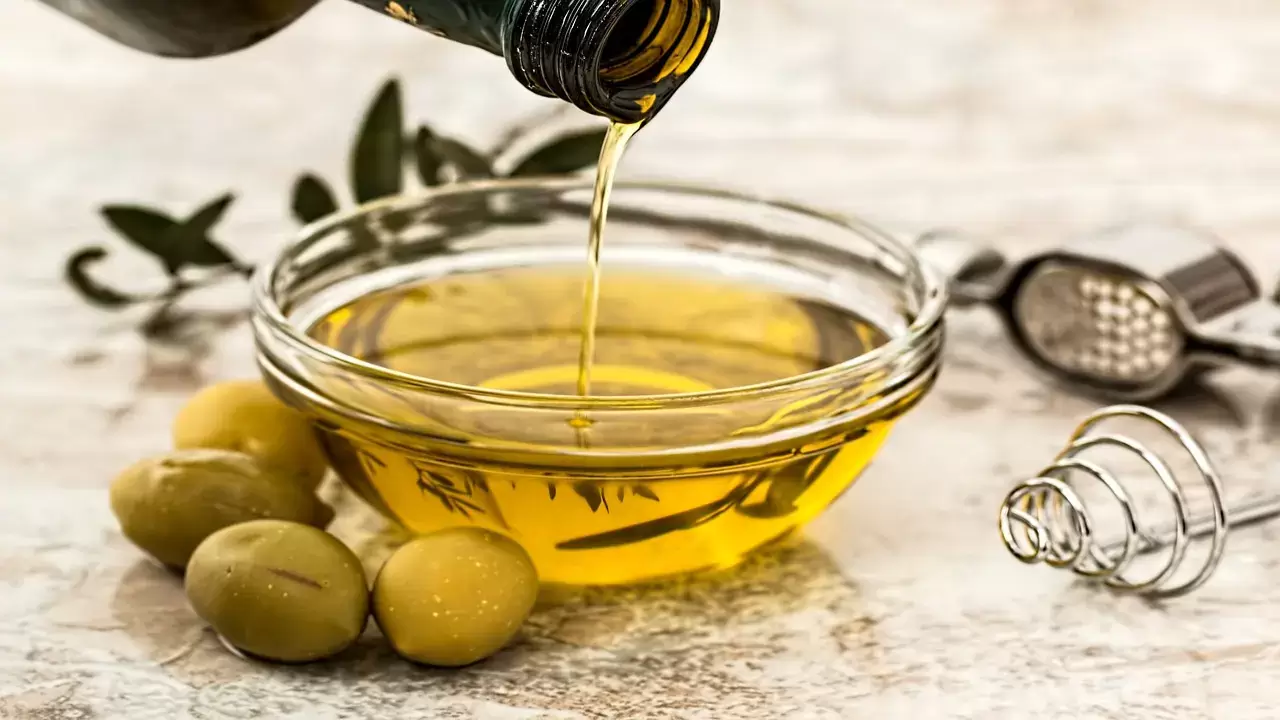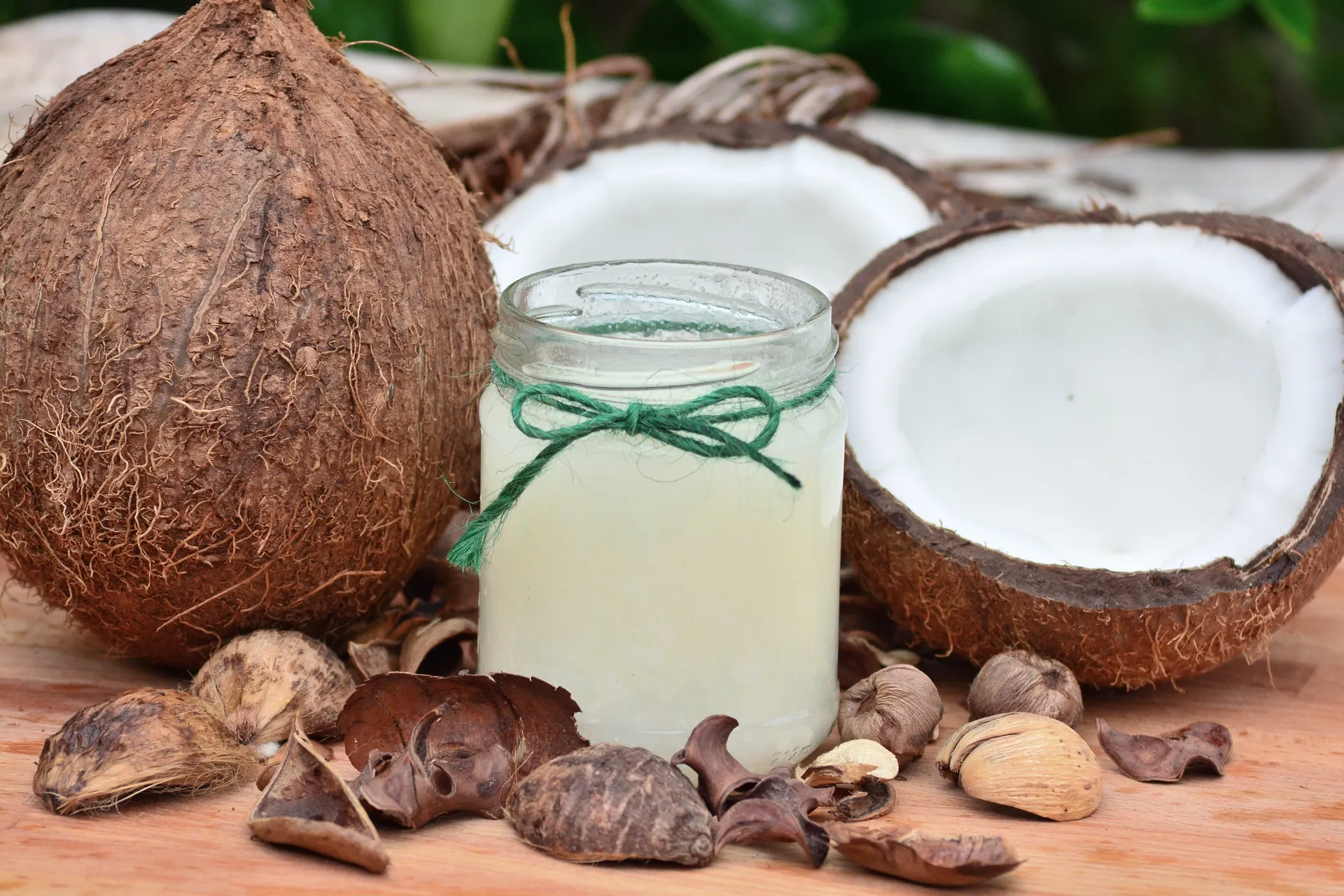
Add natural emulsifiers or small quantities of natural oils and fats, like olive oil, ghee butter, coconut oil, avocado, and homemade natural sauces. All the natural sauces are suitable emulsifiers. Lemon, vinegar, olive oil, ghee, coconut oil, mustard, honey, avocado, and egg yolk are excellent emulsifiers mixed with oils/fats.
Rules for the healthy use of natural oils and fats:
- Using only natural oils and fats in their natural form is mandatory. (Milk can be distilled, and the milk solids removed by light heating)
- It is necessary to adjust the oils for their use. (frying and baking vs. seasoning)
- Oils used in baking and frying must have a high smoking temperature. Otherwise, they risk being burned and turned into harmful trans fat.
- Deep-fried oils should not be recycled.
- Making natural sauces at home or buying those prepared from only natural ingredients is advisable.
- Starches and carbohydrates should be dipped in natural oils to aid digestion and prevent acidity of the intestines.
- Using animal fat (geese, ducks, pork) is essential that the animal receives a natural diet. Otherwise, the fat contains endotoxins. (A figure that is usually unknown)
There is no reason to avoid natural oils and fats; they are essential for good health and a healthy weight.
Types of Fats\oils and where they are found.
Contrary to popular belief, all-natural oils, including saturated fat, are essential and healthy for the body. (Provided the animal receives a natural diet for it, without chemicals, hormones, and growth promoters)
- Monounsaturated oils. (From a plant source)
- It is found in avocados, olives, rapeseed, almonds, cashews, hazelnuts, peanuts, pistachios, and spreads made from these nuts.
- Polyunsaturated oils/fats. (From a plant source as well as from fish and seafood)
- Found in Oily fish, corn oil, sesame oil, soy oil, and spreads made from those oils: Flaxseed, pine nuts, sesame seeds, sunflower seeds, and walnuts.
- Omega 3 and Omega 6 are in this group. The ratio between Omega 3 and Omega 6 is significant.
- The typical Western diet is low in omega-3 fatty acids. (Essential to our immune system)
- Saturated fats. (Except for coconut oil, usually animal fat)
- Found in - Mostly animal fats like sausages, ham, burgers, fatty meat, hard cheese including cheddar, whole milk and cream, butter, lard, ghee, suet, palm oil, and coconut oil.
- Trans-fats. (Usually hydrogenated vegetable oils or overheated oils - Avoid whenever possible.
- It is found in Over-fried foods, (hydrogenated) takeaway food, and snacks like biscuits, cakes, pastries, and margarine.
Coconut oil is saturated fat from the plant, which has health benefits and a high smoking point.

We need to eat natural oils and fats regularly for three primary reasons.
Link: Calories cannot disappear but can be redirected as uncounted.
To lose weight, it is necessary to eat natural fats and oils. The main problem is that animal foods are often processed, and the fat accumulated in animals contains endotoxins that are often not destroyed in cooking.
- Vitamins E, D, A, and K are soluble in fat and natural oils and are essential for proper metabolism and the immune system. Avoiding eating natural oils and fats is a mistake.
- Vitamin D and omega-3 fatty acids are essential for the immune system to prevent inflammatory processes.
- Absorption and regeneration of the gut wall tissue require emulsified foods containing natural oils and fats.
- Bile (produced in the liver) is a greasy, alkaline base fluid that contains cholesterol. Its function is, among other things, to neutralize the acidity that comes from the stomach.
- Fat is an energy reserve for distress and an integral part of many tissues (such as brain tissue, all cell membranes, and hormones). So, instead of synthesizing them, it's better to get them ready.
What are the harmful types of fats and oils?
Hydrogenated plant-based solidified vegetable oils (such as margarine) are trans fats refined with heating or recycled oils. They are incredibly toxic and prohibited.
- Hydrogenated fats, which have the same calories as natural oils, also cause increased obesity. Unfortunately, many industrial products contain these toxic trans fats.
Why are saturated fats (mainly from animals) mistakenly considered harmful to our health?
Animal foods, most of which are industrialized, often contain concentrated proteins that are difficult to digest. High doses damage blood vessels and the heart, so confusingly, attributing the damage to saturated fats is straightforward.
- When animals, meat, poultry, and fish receive an unnatural diet, including hormones, growth promoters, antibiotics, and industrialized food, the quality of the meat, milk, and eggs is low and contributes to chronic morbidity.
- The main problem is that almost all the animal products we consume today are industrialized.
- Organic beef feeds on grass or poultry grazed in meadows and fish, lives in clean water, and receives a natural diet without additives, yielding excellent and healthy produce. These products taste even better than industrialized ones but are expensive and unavailable in many places worldwide.
- Range-free chickens lay exceptionally high-quality eggs with orange yolks compared to the industrialized egg's pale yellowish discoloration.
- Purified ghee butter from grass-fed cows' milk and cold-pressed organic coconut oil have very high nutritional values, even though they are saturated fats.
Is fat milk better absorbed than lean milk? (The answer is "YES")
- I could not find an answer to that question. One can find articles supporting this line of thinking without a clear explanation.
- I believe the answer is that fat milk facilitates emulsification. Without fats, the digestive system cannot adequately absorb the proteins in the milk. Therefore, it spikes a higher insulin response than fat dairy.
A homemade recipe for making ghee-purified butter.
- Buy a kilo, or about 2 pounds, of fine butter, preferably grass-fed butter from organic pastures. Tip: The best quality butter has a deep yellow color, tends to be golden, and has a much lower milk solid content. The amount of clarified ghee butter usually ranges from 60% to 80% of the original butter volume.
- Place the butter in a high saucepan and heat, stirring with a wooden spoon, until lightly boiling. Turn off the stove briefly and let the liquid butter cool. On top, white foam (like soup) forms, which must be eliminated with a spoon. Repeat the light boiling process twice and turn off the stove. Remove the foam floating over the yellowish liquid. White deposits of milk solids can be noticed at the bottom of the pot.
- Pour the hot liquid into a glass jar with a vacuum lid and filter it through an ultra-thin sieve. Avoid pouring the curds from the bottom of the container containing the milk solids.
- Let the ghee butter cool and refrigerate. Without the milk solids, ghee butter is durable outside and does not spoil. (It is also advisable to place it in the refrigerator.)
Ghee butter has a very high smoking temperature and is suitable for cooking, frying, and baking. Ghee butter has a relatively high vitamin K2 content, which is essential in calcium metabolism in the human body. Ghee butter has a subtle, buttery flavor suitable for almost any dish.
Chemistry - What are Emulsions? (3:08 m)
The gastrointestinal emulsification process affects the routing of nutrients and the body's ability to regenerate cells.
The portion of food dedicated to tissue regeneration varies depending on the body's requirements and diet quality and quantity. The rest is converted into energy and fat and influences body weight. Surprisingly! - Processed foods make us gain weight much faster than natural foods, which contain the same calories. Not all calories are equal. The "calorie is a calorie" tautology is wrong.
Every food and beverage has two options for routing within the digestive system.
- To become available energy for immediate exploitation. (Or fat storage.)
- It is to be used for building tissues and long-term maintenance.
This process has tremendous significance for our overall health and appearance and for maintaining optimal weight for our body.
- Adding moist dietary fiber, natural oils/fats, or sauces with good live bacteria might redirect the nutrients to other non-energy purposes.
- Calories from processed foods are usually not suitable for regeneration and make us gain weight much faster than the same calories from natural, unprocessed foods.
- The bile fluid (produced in the liver) and digestive enzymes secreted from the pancreas emulsify all the fats we eat.
Improper emulsification is like cleaning a greasy pot without dish soap. (Impaired absorption of nutrients in the gut).
- People (including children) with fatty livers produce less bile than healthy ones. Many people suffer from gallbladder blockage over the years, which may develop into inflammation. However, it also means a low flow of bile when needed for digesting fatty foods.
- Modern eating habits force the pancreas to work very hard.
- This overload may lead to insulin resistance and diabetes. Low levels of pancreatic enzymes make the emulsification process difficult.
Prominent Food Emulsions.
Oil-in-water emulsions are found in everyday food products:
- Crema (foam) in espresso–brewed coffee oil in water is an unstable emulsion.
- Mayonnaise and Hollandaise sauces.
- Homogenized milk emulates milk fat in water, using milk proteins as the emulsifier.
- Vinaigrette is an emulsion of vegetable oil in vinegar.
- Cheese products include emulsifiers. (Milk is an emulsion.)
- Most cakes and ice creams are emulsions.
- Most sauces are emulsions. (Lemon, vinegar, honey, mustard, egg yolk, and avocado are excellent natural emulsifiers. (Enabling the mixing of oils/fats and water.) No wonder sauces are made of them.
- Many processed foods contain artificial emulsifiers. (Chemicals that act as emulsifiers).
- Many pastries containing fat are emulsified. (Usually by margarine).
- Butter – an emulsion of water in the butterfat
- Margarine.
The emulsion process in the food industry serves many vital roles:
- Emulsions smooth the texture of most solid foods and act as stabilizers.
- Emulsions prolong shelf life.
- Artificial emulsifiers (used in many food products) have significant side effects because they do not act as natural emulsifiers.
A healthy diet requires a measured intake of natural fats and oils. The quality of animal fats (saturated fats) depends mainly on the animal's diet.

The oil we use must be adapted to the type of cooking. Seasoning salads do not require oil with a high smoking point, so olive oil (and the like) are a great choice. For baking and frying at high temperatures, using oil (or fat) with a high smoking temperature, such as Ghee (clarified butter), coconut oil, grapeseed oil, peanut oil, and more, is mandatory.

